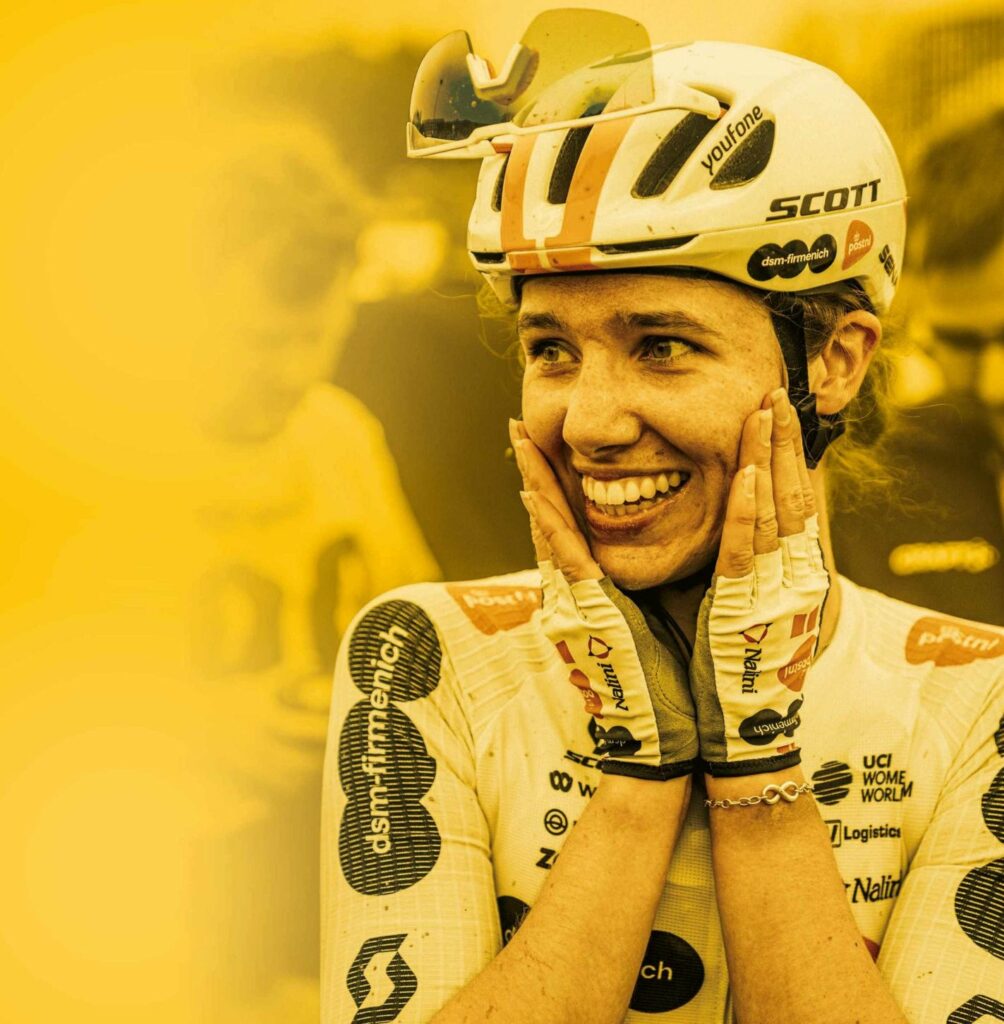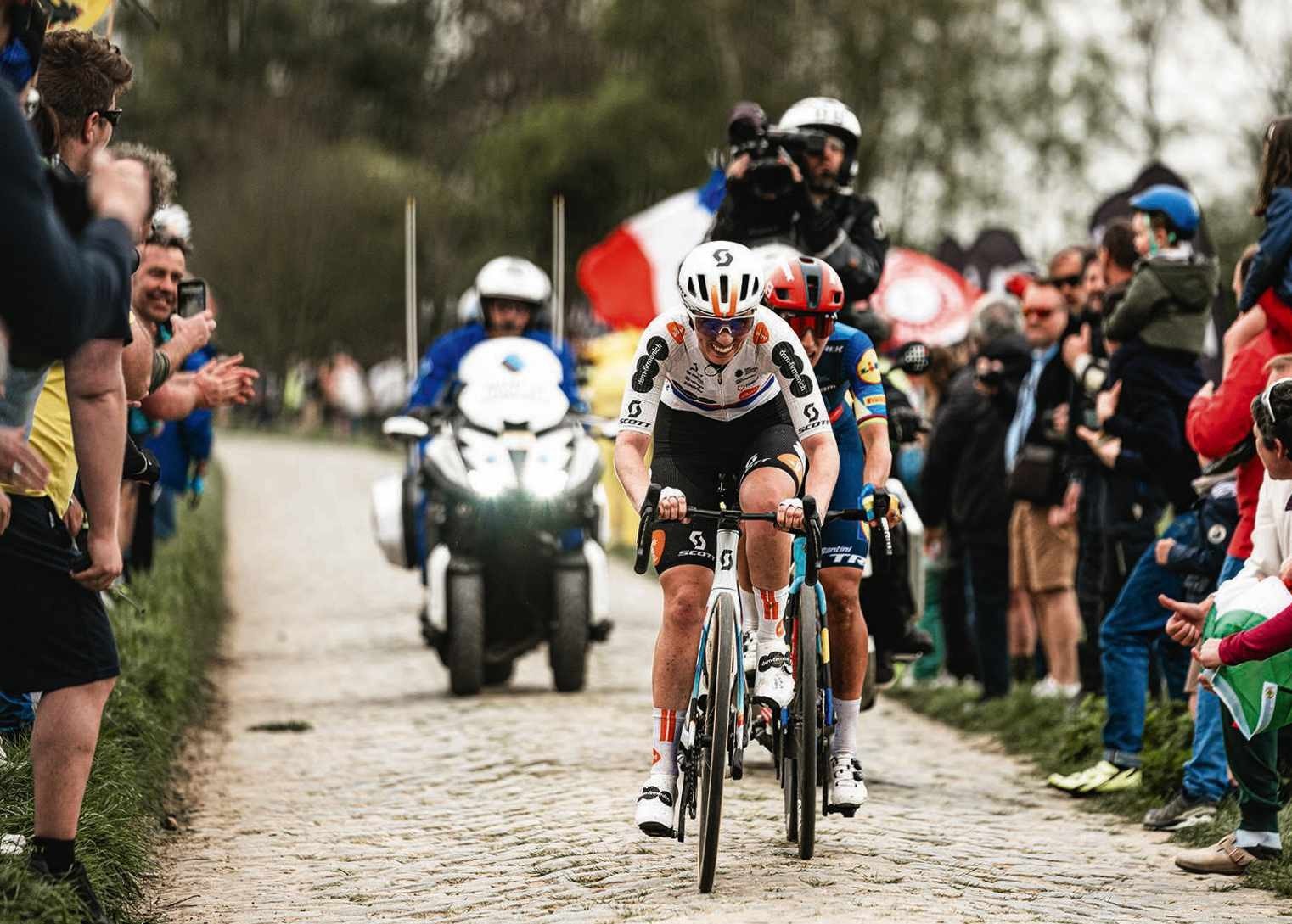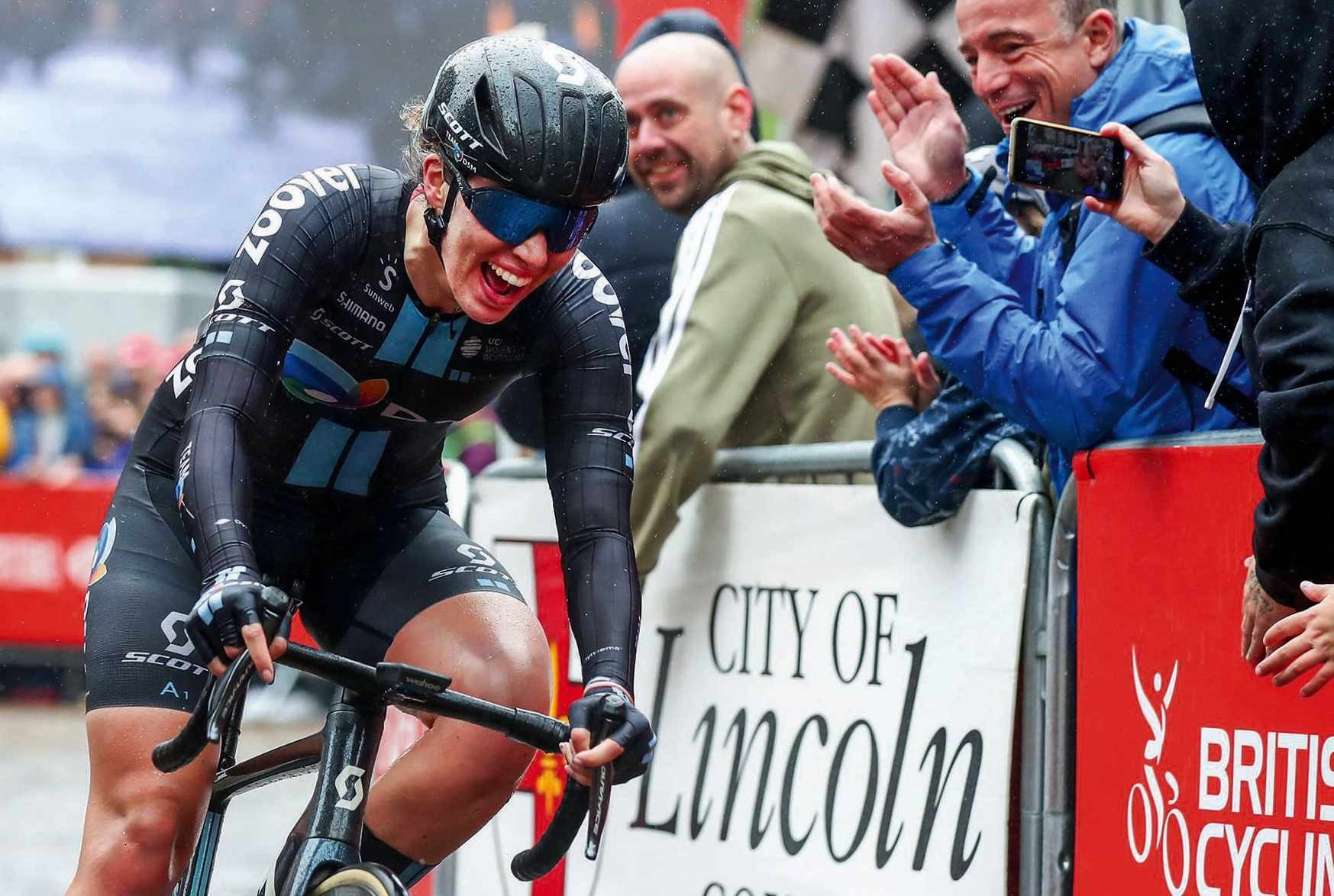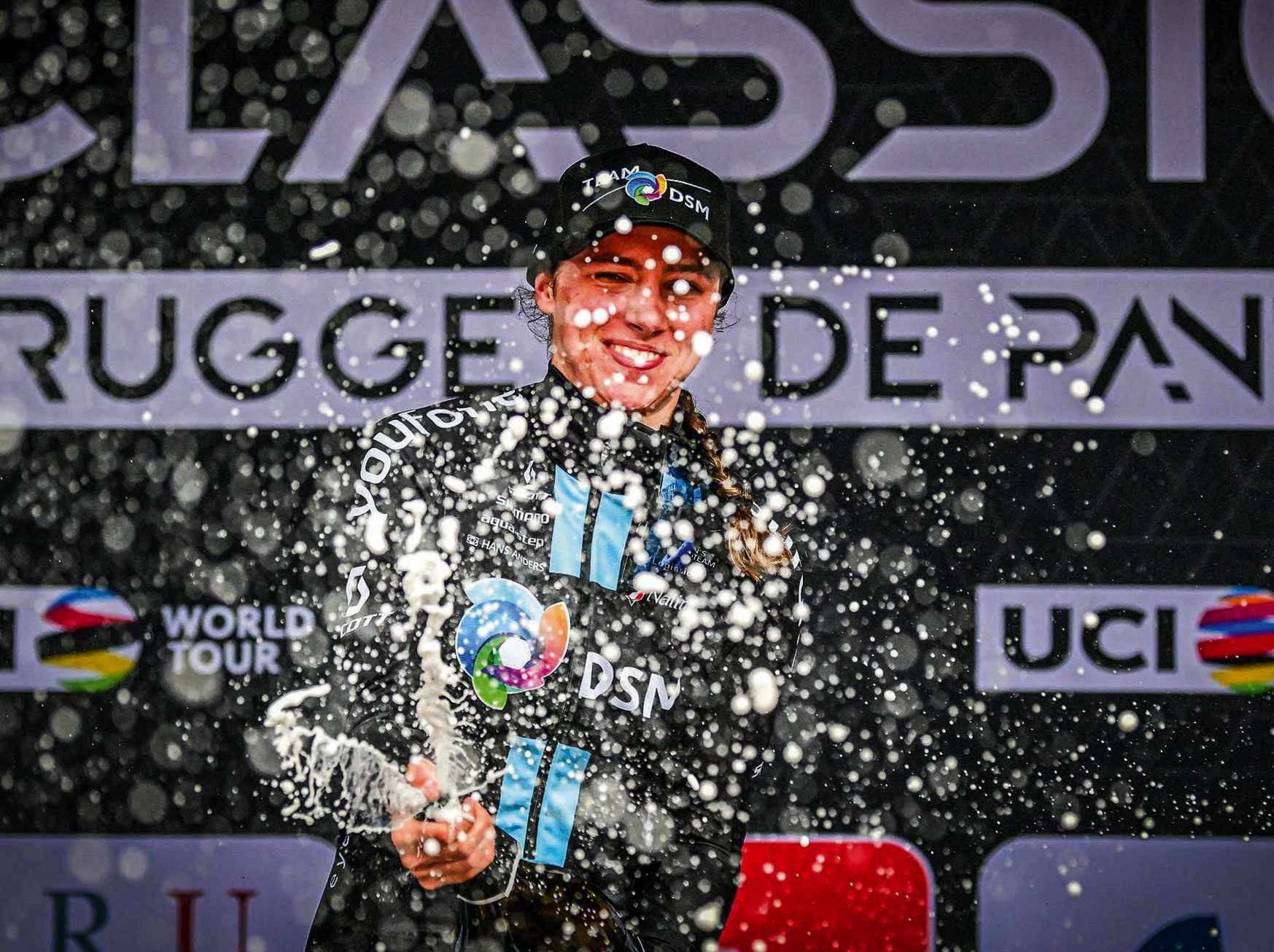Captain Marvel
Great Britain’s 2023 national road champion Pfeiffer Georgi is one of the youngest road captains in the peloton. Here she explains this unique job and the pressures that go with it in the season’s biggest race

Just 23 years of age, Britain’s Pfeiffer Georgi has quickly carved out an influential role in her sport, both as a contender in the one-day Spring Classics and as a lynchpin of her team, dsm-firmenich PostNL. Twice a British National Champion on the road, this Gloucestershire native turned around her fortunes in the spring at her beloved Paris-Roubaix with a place on the podium. “I know it’s not the win but for me it means a lot,” she beamed on the finish line. That was followed up by 4th in Amstel Gold, losing out in a sprint to Marianne Vos. “I felt good the whole spring, but it wasn’t going well [with results],” she tells Cycling Plus from her home in Andorra. “It just took that one result in Roubaix. Then in my eyes, it was a good spring.”
We caught up with her in a season downtime between the Classics, in which she often shoulders team leadership and races for wins, and the summer stage races, where she assumes the road captain role, in support of Charlotte Kool in the sprints and Juliette Labous for the general classification. The captain job is primarily one of communication and decision-making – executing the plan of her sports directors on the road and making quick decisions when required. “I was introduced to the role towards the end of the season a couple of years ago in some of the races. That was a bit scary, a bit nerve-wracking, because I’m not naturally the one who speaks up. But I did it all last season, and have gained the experience of it.”

Young guns
Though still just 23, Georgi’s ability to influence her team-mates is certainly helped by the squad being one of the youngest on the Women’s WorldTour. “Our average age is 21 for a lot of races, so we’re a very young team. I’m quite young myself but this is my sixth year with the team so there’s a lot of experience I can bring to the role, like keeping them calm in stressful moments. I don’t get too overwhelmed when things are going wrong, which is a benefit.”
She’s grateful to management for giving her the job and identifying that she’d be right for it. Asked if being road captain has fast-forwarded her development as a rider, she says it has – and as a person to boot. “Taking this role, it’s not something I would have put myself up for, or usually think that it would suit me. I think it’s made me more outgoing, made me more comfortable in voicing my opinion. I think that also comes over time through me growing with this team. When you’re a first year and you’re with girls who’ve been pro for 10 years, it’s natural that you don’t want to speak up.”

Does she adapt her captaincy methods depending on who’s leading the team in a race? “The basic structure and the way we work is the same each race, but because you’ll have a different group of six girls each race, you need to get to know everyone individually. Some may need more help with their positioning, or perhaps some are more nervous. That’s part of the role, to understand how best your team-mates work and how to get the best out of them.” The team also has a motivational chant for the team bus that helps to get them hyped up before each race. Would she give Cycling Plus a rendition? “Haha, no – that’ll stay a secret!”
Do team leadership and captaining come with different pressures? “Yeah, I think so. Sometimes there’s even more pressure when you have to ride for someone else – their success is dependent on you. When you’re riding for yourself, it’s more you that you’re letting down [if it doesn’t go well].”
In between supporting Kool and Labous, there are some middle stages of this year’s Tour de France Femmes that suit Georgi, the Classics player. Does she have her own objectives for August? “I think the stage [4] that starts in Amstel [Valkenburg] and ends in Liège is a cool stage, the one that probably excites me most.”
Under pressure
“The Tour is the Tour,” is the most common refrain you’ll hear from the men at the Tour de France, shorthand for the unique pressures and demands of the season’s biggest race. After two editions of the Tour de France Femmes, does Georgi see this happening in the Tour de France Femmes? “In the first edition that started in Paris, you really sensed how big the event was. It was something the whole peloton had waited for for such a long time. The crowds, the coverage, the excitement leading up to it, everything was noticeably bigger. There’s so much up for grabs at the race. Everyone wants to win the yellow jersey, which makes the racing extremely hard and nervous.”

She enjoys the different pressures of the Tour and Classics. “I’ve always liked with the Classics that it’s just one day and that you have to mentally prepare for it and just let it all out and be done with it. Stage races are completely different, you get into this rhythm of breakfast, race, cool down, recovery, massage and sleep. The days go so fast. Maybe by day 4, you get to a certain level of tiredness and it stays at that level until the end of the race. At that point, it’s about trying to motivate each other. People say to me, do you think the race should be three weeks [like the men’s race]? I think maybe not yet. I can see it growing but it wouldn’t make sense to go straight from one week to three.”
Georgi and the team are focused on the first stage of the race in Rotterdam and winning the first yellow jersey for their Dutch sprinter Charlotte Kool. “That’s a really big goal… we’re in the Netherlands, we’re a Dutch team with Dutch sponsors.”
Then, at the end of the race, comes a summit finish at Alpe d’Huez, one of pro cycling’s most sacred locations. Forget climbing it in a race, Georgi has never even done it in training. It’s sure to be another giant stride forward for this fast-developing Brit.